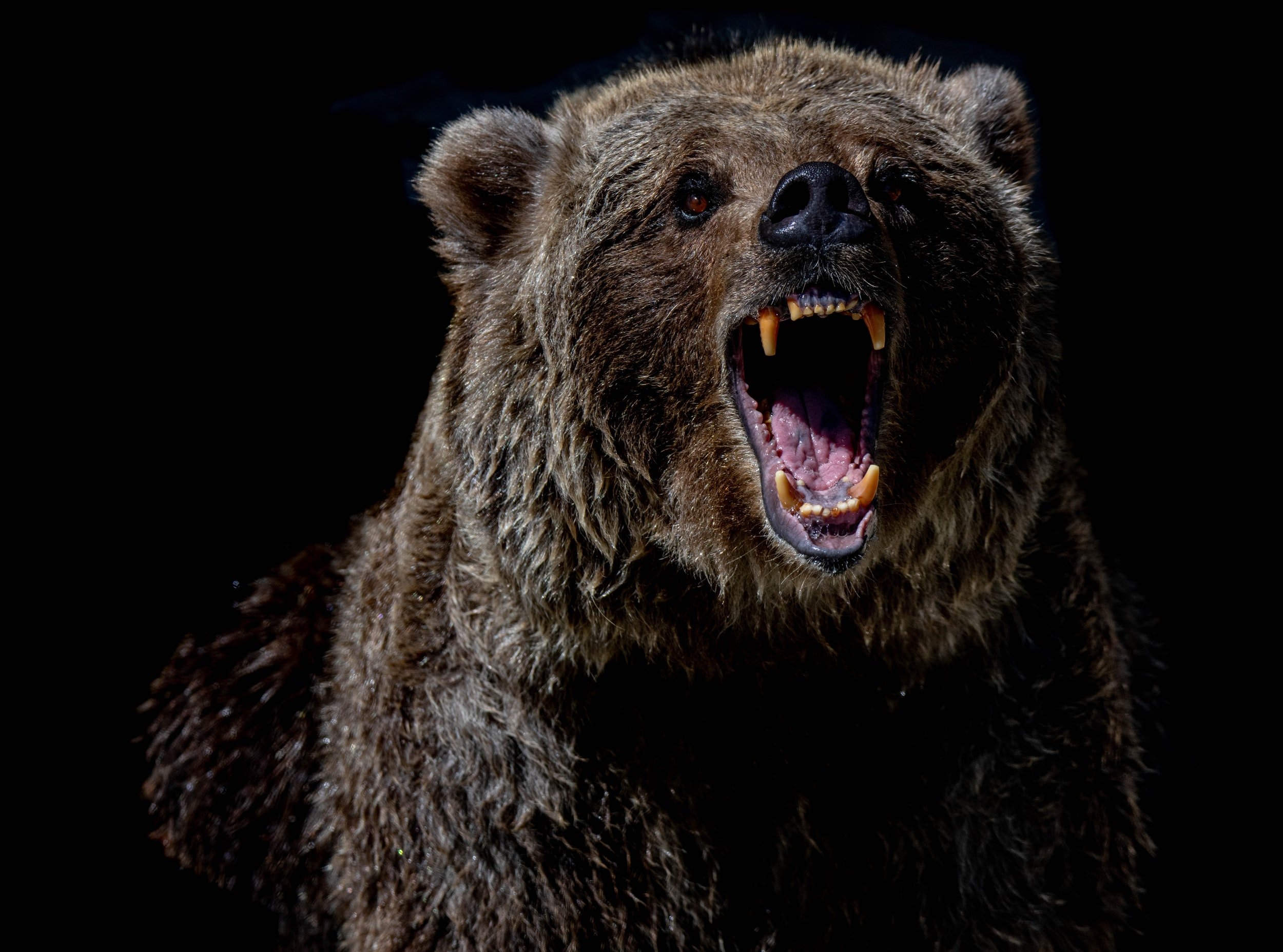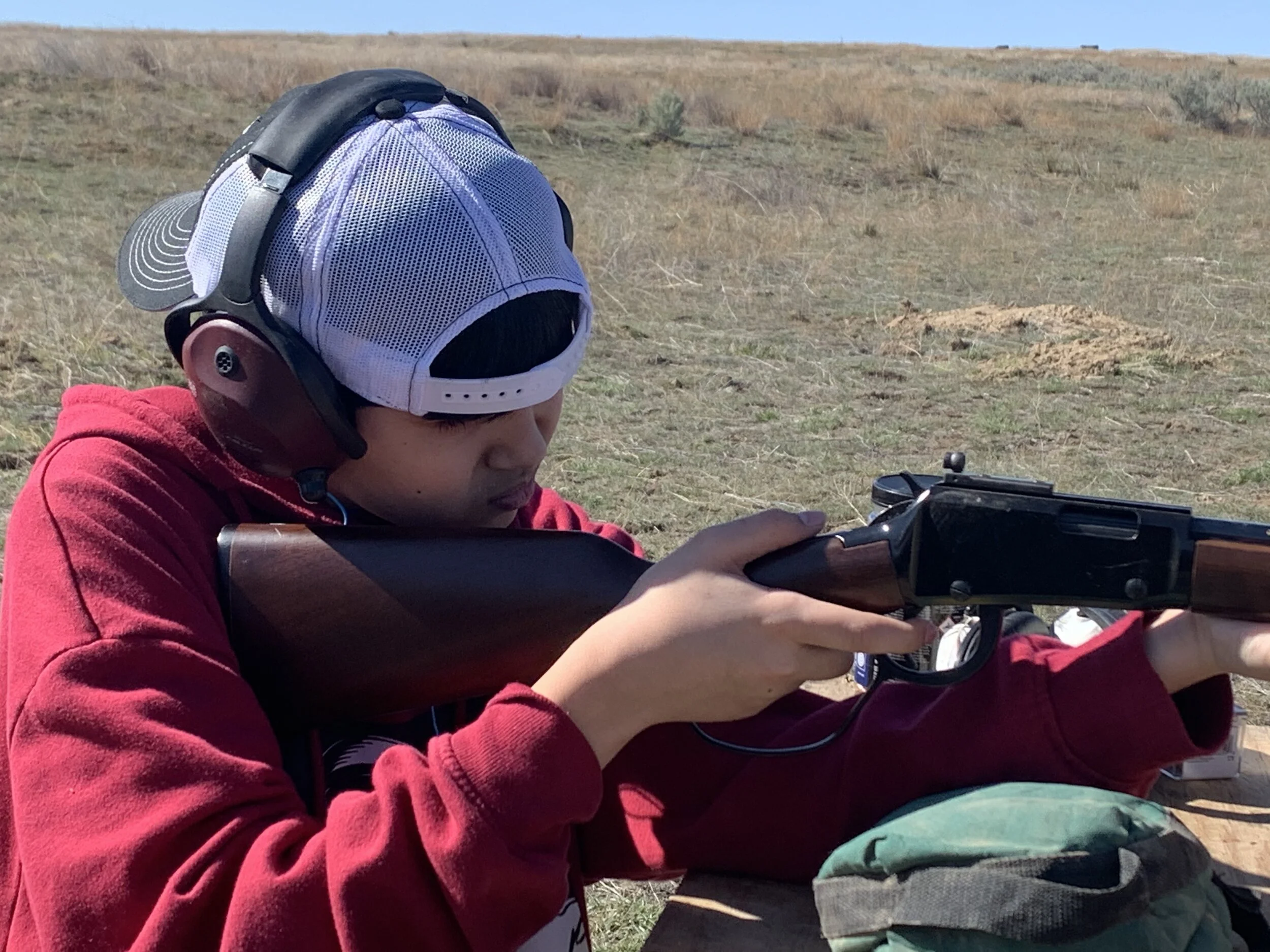Why We Hunt
The little red jewels pictured here are carmine bee eaters. They capture insects on the wing and are one of the reasons I hunt. I saw, heard and photographed these while prowling the Chobe river for hippos. Songbirds, snow squalls, golden leaves, wind in the grass -- every nuance, every delight of the natural world is mine while I'm interacting with the natural world, one-on-one, hunting. The bulky gray gem shown here is a bull hippopotamus, another reason I hunt. I shot the hippo with a Kimber Caprivi rifle in 375 H&H Magnum. An hour and twenty-five minutes later I shot the bee eaters with a Canon 7D and 70-200mm 2.8 lens with a 1.4X Tele-extender. They were swooping over the river where the hippo had sunk after my brain shot. After photographing one of the crimson birds in flight, I looked down to see my hippo bob back to the surface. It was time to butcher the meat for the local villagers. Some folks like to think photographing birds is a "non-consumptive use" of natural resources and shooting hippos is a violation of Nature, but Nature herself argues against that. Consider how She has set up the cycle of life. It feeds on itself. Life feeding on life. Imagine that. Predation is more natural than photography. Every animal feeds on other living things, whether plant or animal. Only the human animal wastes time and resources making pictures. Non-consumptive use? Eco-tourism? We burn plenty of hydrocarbons jetting to those ecosystems. We burn more when we demand five-star lodges with swimming pools, hot tubs, showers and elaborate dinners set amid natural wonderlands where elephants water below our dining decks, illuminated in the glow of electric lights consuming more polluting hydrocarbons. I have nothing against viewing wildlife or even staying in five-star lodges. But I can't see how traipsing all over the world's special places just to look at them is any "better", "holier" or less invasive than going hunting. To hunt is an ancient and natural exercise. The meat of the hippo I shot (about 4,000 pounds) was distributed to dozens of local families. The fees I paid for my hippo adventure also went to the locals, which means they see value in tolerating aggressive, 4,000-pound beasts that often attack them, their boats and sometimes their cattle. Don't let the cartoons fool you. Hippos are strong, quick and aggressive. They reportedly kill between 2,000 and 3,000 people a year. Is that a good excuse for shooting them? Perhaps, especially if you or your loved ones are the ones being attacked. But an even better reason to hunt hippos is to keep them alive. Huh? Rural folks would rather not live cheek-to-jowl with hippos, so they harass, poach and poison the creatures. But they'll tolerate the beasts if they receive enough meat and money from hunters who do them the favor of taking the biggest and orneriest old bulls out of the herds. The system works like this: a local tribe will contract with a biologist to ascertain how many hippos their communal lands will support and how many can be removed from the herds without jeopardizing the population. They will then contract with a hunting outfitter, known as a Professional Hunter in Africa, who will then find wealthy clients willing to travel to Africa and pay for the adventure of a hippo hunt. The two, aided by a local Game Scout, will search for a battle-scarred old bull like the one I shot -- one that has been driven from the herd by a younger, fitter bull. A single bullet to the head kills the bull instantly. The meat, relished by most locals, is then distributed. The hunter keeps photos, memories, perhaps the fighting teeth or the skin for making boots and wallets. The rest of the carcass draws a crowd of vultures, storks, crows, hyenas, jackals and even tiger fish. Living things, thousands of living things, need dead things to eat. Local Africans also benefit from jobs. Hunting camps need not only Game Scouts, but trackers, skinners, butchers, cooks, drivers, launderers, cleaners and more. This minimizes political pressure to convert wildlife habitat into farms, ranches, villages and other non-wildlife habitats. Hunting. Wildlife photography. Neither is truly eco-tourism, if such a thing even exists. But, done right, hunting can provide remarkable benefits to wildlife, natural ecosystems and the people living in those ecosystems. # # #















